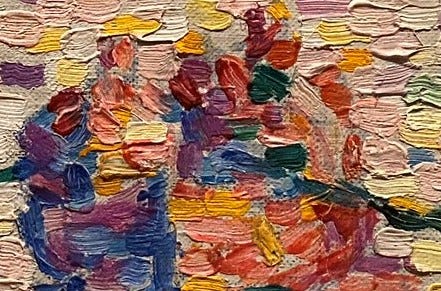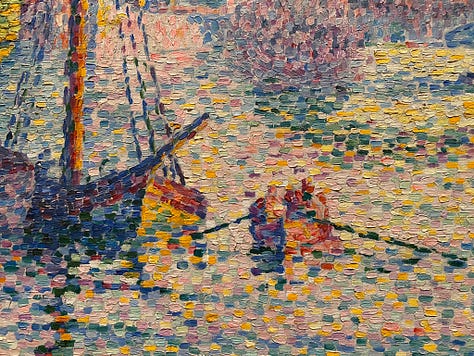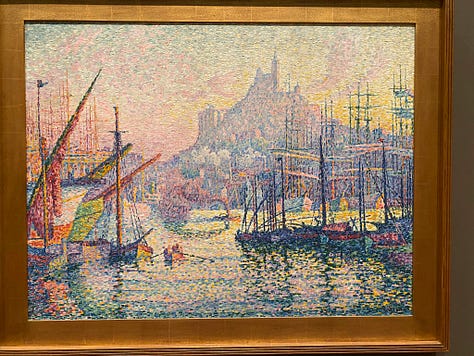When I was a boy, I loved nothing more than hearing my grandfather tell stories.
A few weekends every summer, my family would pile into our red Ford Windstar and drive three hours north to my grandparent’s cottage, on the southern edge of Algonquin Provincial Park. It was a cozy cabin—built in the 60’s—that retained a rugged remote feel. Thin walls and shag carpets and a black iron wood-burning stove and furniture that smelled like old books.
During the days we would birdwatch and paddle around the lake in a birchbark canoe and buy penny candy from the nearby trading post. But in the evenings, as dusk fell and my brother and I settled for sleep in our bunk bed, my grandfather would lean on the wooden frame, one knee up, to tell us a bedtime story in his slow, smoky but endlessly entrancing tone.
He would tell all sorts of stories, but his favourite was the tale of Kadiddlefink. The mysterious, magical, mischievous dwarvish man who wandered the woods around our cottage, communing with nature, speaking with the birds and the bears, and lived underneath our gazebo. (Although, despite my searching, I never saw him). My grandfather would wrap me and my brother into his tale, helping Kadiddlefink with his various adventures, sometimes saving the day. Even at a barely conscious age, the ancient ideas of myth and heroism enraptured my imagination.
This month, I’ve been studying the Hero’s Journey. It’s a narrative arc woven through all the legends and lore humans have been telling since the dawn of time.
The quest begins when the hero hears a call to adventure, reluctantly leaves the comforts of home and sets out on a Road of trials, in search of something greater than themselves.
Ultimately it’s a journey of transformation. Death of the old self and rebirth of a new self.
A defining characteristic of the hero’s journey is this idea of wandering. The hero has an aim, a destination, but the path forward is shrouded in darkness. They do not march triumphantly toward their aim in a straight line. Most of the time, they are stumbling and bumbling around in the darkness, doubtful of finding the way. Hope flickers and sputters, like a candle in the wind.
But wandering is not a detour or distraction but the very fabric of the journey itself. It is the process that brings the hero into contact with trials that test their strength and also so much unexpected wonder.
Just because the hero wanders doesn’t mean they won’t find their way. Wandering is the process that reveals the way. As Gandalf writes in a letter to Frodo in Tolkien’s Lord of the Rings: “Not all those who wander are lost”.
As I try to live the lessons I learn, and courageously answer my life’s call to adventure, I find myself venturing into the unknown. My path feels uncertain, undirected, undecided. I feel a bit lost, afraid, unmoored. But the Hero’s Journey reminds me the wandering is all part of transformation.
I’ve internalized that life is this continual process of stumbling off my path and then finding my way back. That it requires a willingness to wander. That I can find my way by putting one foot in front of the other, attending to the simple needs of the present moment, attuning to the murmurs of my heart and the whispers of my intuition.
The alternative is to remain snared in the shackles of certainty. The hero who refuses the call, who willfully turns away from their quest, inhabits a dry, meaningless existence (even if they have “a good life” from every external measure). They will be fixed in their present ways. Never to evolve, grow, change. Safe, but trapped. Cast in carbonite like Han Solo.
But when the hero commits to their quest, forces far stronger than themselves provide support. They fall under the protective power of providence. “One has only to know and trust, and the ageless guardians will appear” (Campbell).
In Write of Passage, the Cultural Tutor shared his Mulan Moment. In April 2022, he was unsatisfied with life and his restlessness culminated in a profound feeling there was something he needed to do, a calling he needed to follow. With no money or prospects, he quit his job mopping up McFlurry messes at McDonald’s and started a Twitter account, writing every day on topics he loved. Just a year later, he has 1.4M followers… and his life has changed completely.
His story reminded me of a Terence McKenna quote I return to often:
“Nature loves courage. You make the commitment and nature will respond to that commitment by removing impossible obstacles. Dream the impossible dream and the world will not grind you under, it will lift you up. This is the trick… This is how magic is done. By hurling yourself into the abyss and discovering it's a feather bed.”
Up close, in the day-to-day trenches of life, the journey looks shaky. Who I am today can feel impossibly distant from who I envision my ideal self to be. But, one day, looking back, I trust I will see the big picture, the smooth storyline. I will see how all my mistakes and misfortunes were vital, how the seemingly disjointed parts of my life fit together, and how feeling lost was an inevitable step in finding myself. How each intimate individual brushstroke on the canvas of life creates this beautiful whole.



At the heart of the Hero’s Journey is a promise. A promise that if I pursue my path with courage and competence life will expand, in wonder, glory, divinity, and pull me into an existence far greater than I can imagine. I will experience firsthand how life is this big, beautiful tragic comedy of a story. And begin to glimpse the wellspring of truth my grandfather tapped into when he told us those bedtime stories, all those years ago.
Thank you for reading my writing. I hope this piece made your day a little more beautiful.
If you enjoyed this, you might like my related piece on the dangers of deservance.
Ps. If you want to support my work, the best way to do so is by sharing it with others who would benefit from reading it. Beyond that, click the ❤️ button on this post so more people can discover it.




